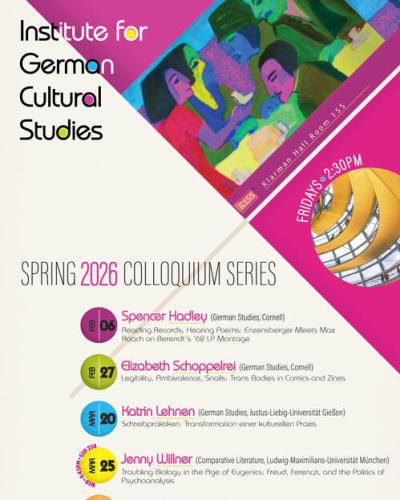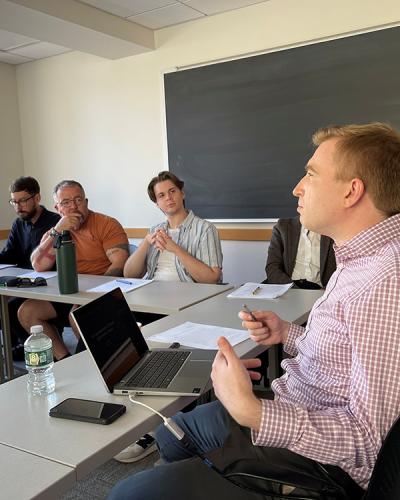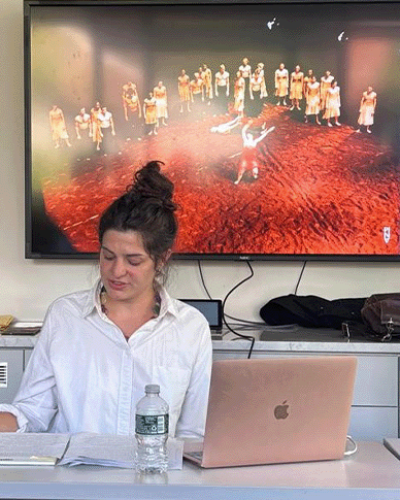“Rilke’s Re-positions (Umstellungen)” is the fourth chapter of my book, Democracy’s Medium: Poems Critique the Rule of the People in Peru and Germany. This book is an exercise in democratic conversation that I carry out with the reader, with the aims of revisiting the concept of democracy from the basis of our conversation. My book’s big picture argument is that democracy needs a medium for its operations, and that poems in cross-cultural conversation can be this medium. I claim that being able to mediate democracy allows us to articulate the fact that democracy involves existing non-hierarchical relations among people. It thus allows us to refocus our attention away from democracy’s institutional paradoxes and toward democratic relationships already existing within, beyond, and across institutions.
To make this claim, I mobilize a definition of poems as the combination of intentional and unintentional activity that produces generality without content and specificity without elaboration. I anchor this definition in its sheer historical possibility, which I understand as itself mediated by the global histor(ies) of modern liberal democracy. I study this possibility for poetry at three key moments in this history through the works of six poets—Mariano Melgar, Friedrich Hölderlin, Rainer Maria Rilke, César Vallejo, José María Arguedas and Paul Celan—and the German and Peruvian cross-cultural conversation that they enable. Starting from these poems’ shared focus on deriving the political potential of the poem from the basis of the poetic limit, I then mobilize the specificity of each to rethink key components of the concept of democracy: people, rule, equality, freedom, justice and conversation.
“Rilke’s Re-positions” begins the book’s second part, which focuses on reexamining democracy’s operations via the concepts of equality and freedom. In this chapter, I argue, first, that equality shapes our democratic citizenship in that it names the necessary interdependence of our existing relationship; and second, that poems can help us articulate that this is the case and generalize it into democratic politics. I claim that doing so is pivotal for dislodging discourses of equality from paradigms of recognition, such that we can clarify equality’s political function in social movements and within debates on social rights. I take Rilke’s New Poems collections as a site for this exploration. The New Poems, I argue, both enact and reflect a sociality based on grammatical personhood. They do so by defining the poem in terms of the limiting operation of re-positioning (Umstellen), which creates a textual context defined by the necessary relationship of interdependence between the first, second and third persons. In so doing, the poem is able to bring out the third person and reflect it as the relationship upon which the equal existential necessity we have of each other is both enacted and articulated—such that it may be generalized.
 Department Homepage
The College of Arts & Sciences
Department Homepage
The College of Arts & Sciences
IGCS Colloquium: Vanessa Gubbins




